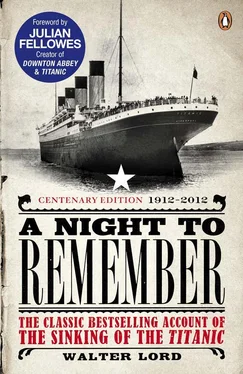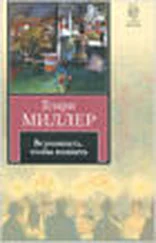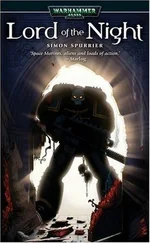At 12.05 a.m.—twenty-five minutes after that bumping, grinding jar—Captain Smith ordered Chief Officer Wilde to uncover the boats… First Officer Murdoch to muster the passengers… Sixth Officer Moody to get out the list of boat assignments… Fourth Officer Boxhall to wake up Second Officer Lightoller and Third Officer Pitman. The captain himself then walked about twenty yards down the port side of the boat deck to the wireless shack.
Inside, first operator John George Phillips and second operator Harold Bride showed no sign that they realized what was happening. It had been a tough day. In 1912 wireless was still an erratic novelty; range was short, operators were inexperienced, and signals were hard to catch. There was a lot of relaying, a lot of repeats, and a lot of frivolous private traffic. Passengers were fascinated by the new miracle, couldn’t resist the temptation of sending messages to friends back home or on other ships.
All this Sunday the messages had piled up. It was enough to fray the nerves of any man working a fourteen-hour day at thirty dollars a month, and Phillips was no exception. Evening came, and still the bottomless in-basket, still the petty interferences. Only an hour ago—just when he was at last in good contact with Cape Race—the Californian barged in with some message about icebergs. She was so close she almost blew his ears off. No wonder he had snapped back, ‘Shut up, shut up! I am busy; I am working Cape Race!’
It was such a hard day that second operator Bride decided to relieve Phillips at midnight, even though he wasn’t due until 2.00 a.m. He woke up at about 11.55, brushed by the green curtain separating the sleeping quarters from the ‘office’, and asked Phillips how he was getting along. Phillips said he had just finished the Cape Race traffic. Bride padded back to his berth and took off his pyjamas. Phillips called after him that he thought the ship had been damaged somehow and they’d have to go back to Belfast.
In a couple of minutes Bride was dressed and took over the headphones. Phillips was hardly behind the green curtain when Captain Smith appeared: ‘We’ve struck an iceberg and I’m having an inspection made to see what it has done to us. You’d better get ready to send out a call for assistance, but don’t send it until I tell you.’
Then he left but returned again in a few minutes. This time he merely stuck his head in the doorway:
‘Send the call for assistance.’
By now Phillips was back in the room. He asked the captain whether to use the regulation distress call. Smith replied, ‘Yes, at once!’
He handed Phillips a slip of paper with the Titanic ’s position. Phillips took the headphones from Bride, and at 12.15 a.m. began tapping out the letters ‘CQD’—at that time the usual international call of distress—followed by ‘MGY’, the call letters of the Titanic . Again and again, six times over, the signal rasped out into the cold, blue Atlantic night.
Ten miles away, Third Officer Groves of the Californian sat on the bunk of wireless operator Cyril F. Evans. Groves was young, alert and always interested in what was going on in the world. After work he liked to drop by Evans’ wireless shack and pick up the latest news. He even liked to fool with the set.
This was all right with Evans. There weren’t many officers on third-rate liners interested in the outside world, much less the wireless telegraphy. In fact, there weren’t any others on the Californian . So he used to welcome Groves’ visits.
But not tonight. It had been a hard day, and there was no operator to relieve him. Besides, he had been pretty roughly handled around 11.00 when he tried to break in on the Titanic and tell her about the ice blocking the Californian . So he lost no time tonight closing down his set at 11.30, his scheduled hour for going off duty. Now—dead tired—he was in no mood for chatting with anybody. Groves made a brave try: ‘What ships have you got, Sparks?’
‘Only the Titanic .’ Evans scarcely bothered to glance up from his magazine.
Undeterred, Groves took the headphones and put them on. He was really getting quite good, if the message was simple enough. But he didn’t know too much about the equipment. The Californian ’s set had a magnetic detector that ran by clockwork. Groves didn’t wind it up, and so he heard nothing.
Giving up, he put the phones back on the table, and went below to find livelier company. It was just a little after 12.15 a.m.
3. ‘God Himself Could Not Sink This Ship’
The door to the cooks’ quarters whacked open against the iron cot of assistant baker Charles Burgess. He woke up with a start and stared at second steward George Dodd standing in the doorway. Normally a rotund, jolly man, Dodd looked serious as he called, ‘Get up, lads, we’re sinking!’
Dodd moved forward to the waiters’ quarters, where saloon steward William Moss was trying to rouse the men. Most of them were laughing and joking, when Dodd burst in, shouting, ‘Get every man up! Don’t let a man stay here!’
He moved on with Moss towards the stewards’ quarters. Just outside, smoking-room steward Witter was already getting some disturbing news from carpenter Hutchinson: ‘The bloody mail room is full.’ Moss came up and added, ‘It’s really serious, Jim.’
The wisecracks that greeted the first warnings faded, and the crew tumbled out of their berths. Still half-asleep, baker Burgess pulled on pants, a shirt, no lifebelt. Walter Belford wore his white baker’s coat, pants, didn’t stop to put on his underdrawers. Steward Ray took more time; he wasn’t worried—nevertheless he found himself putting on his shore suit. Steward Witter, already dressed, opened his trunk and filled his pockets with cigarettes… picked up the caul from his first child, which he always carried with him… then joined the crowd of men now swarming out into the working alleyway and up towards the boat stations.
Far forward, away from the uproar, trimmer Samuel Hemming climbed back into his bunk, satisfied that the hissing sound in the forepeak didn’t mean very much. He was just drifting off to sleep when the ship’s joiner leaned in, saying, ‘If I were you, I’d turn out. She’s making water one-two-three, and the racket court is getting filled up.’ An instant later the boatswain appeared: ‘Turn out, you fellows. You haven’t half an hour to live. That is from Mr Andrews. Keep it to yourselves and let no one know.’
Certainly no one knew in the first-class smoking-room. The bridge game was going full blast again. Lieutenant Steffanson was still sipping his hot lemonade, and another hand was being dealt, when a ship’s officer suddenly appeared at the door: ‘Men, get on your lifebelts; there’s trouble ahead.’
In her A deck stateroom, Mrs Washington Dodge lay in bed, waiting for Dr Dodge, Assessor for San Francisco, to dig up some news. The door opened and the doctor came in quietly: ‘Ruth, the accident is rather a serious one; you had better come on deck at once.’
Two decks below, Mrs Lucien Smith—tired of waiting for Mr Smith to finish exploring—had gone back to sleep. Suddenly the lights snapped on, and she saw her husband standing by the bed, smiling down at her. Leisurely he explained, ‘We are in the north and have struck an iceberg. It does not amount to anything but will probably delay us a day getting into New York. However, as a matter of form, the captain has ordered all ladies on deck.’
And so it went. No bells or sirens. No general alarm. But all over the Titanic , in one way or another, the word was passed.
It was very bewildering to eight-year-old Marshall Drew. When his aunt Mrs James Drew woke him and said she had to take him on deck, he sleepily protested he didn’t want to get up. But Mrs Drew paid no attention.
Читать дальше












